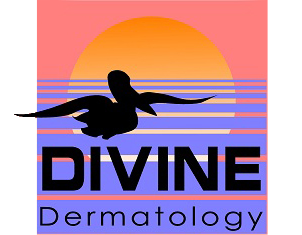The Four Types of Acne
Acne is one of the most common skin conditions experienced by people, starting from the age of puberty and well into adulthood. According to the American Academy of Dermatology, approximately 85% of people between the ages of 12 and 24 experience at least some minor form of acne. Many people think that acne falls just under one type. However, acne can be categorized into four categories:
Inflammatory Acne
Inflammatory acne appears when your immune system starts sending white blood cells to combat the infection caused by clogged pores in your skin. As a result, the area around the clogged pore because red, swollen or inflamed. When the hair follicle’s wall ruptures, bacteria and oil start leaking into the surrounding skin, causing inflammatory acne to appear.
Comedonal Acne

Comedonal acne results from having clogged pores. When people have excess bits of oil, dirt or wax under their skin, comedonal acne forms, because the hair follicle becomes clogged. This type of acne looks like tiny bumps all over the skin. Examples of comedonal acne include blackheads and whiteheads.
Cystic Acne
This is the most severe type of acne. Cystic acne can leave scars due to the deep inflammation inside the skin and thus must be treated really early on its onset. This type of acne is linked to a hormonal imbalance and is likely to appear around the jawline, chin or the lower portion of the face.
Hormonal-onset Acne
Also known as “Adult Acne”, hormonal-onset acne usually occurs in women in their late 20’s or their early 30’s. This is caused by changes in the hormonal levels, like a drop in estrogen which happens during a woman’s early 30’s. This can also be caused by changes in medication, like birth control pills or supplements.
5 General Skin Care Tips to Prevent Acne
1. Washing your Face – your facial skin takes a daily beating from dirt, bacteria and the excess oils your skin produces. It’s important to wash your face twice a day to get rid of any impurities it may have. Use warm water and a gentle facial soap or mild cleanser.
2. Moisturize your skin – dryness results in more oils being produced by your skin, and can then cause pore blockage and result in acne.
3. Sunscreen – When you are using products to disinfect the skin, you need sun protection to prevent the sun from causing any further damage.
4. Stress Management – studies show that stress can cause acne breakouts OR worsen existing acne. Cells that produce sebum (the oily substance that can clog hair follicles) have receptors for stress hormones. Make sure that you de-stress every now and then, not just for your emotional and mental well-being but also for your skin.
5. Getting Enough Sleep – Not getting enough sleep increases the skin’s proneness to inflammation, which can cause or worsen your acne. Cortisol, the hormone that your body produces when sleep-deprived, increases the chance of inflammatory acne. Make sure that you are getting at least 6 to 7 hours of sleep.



